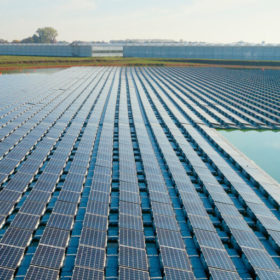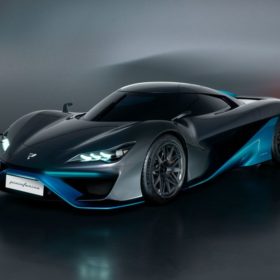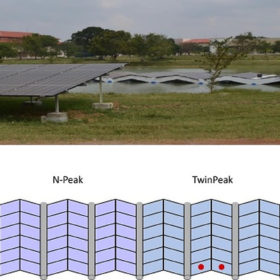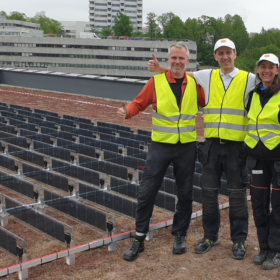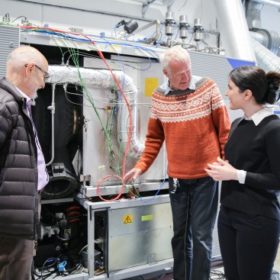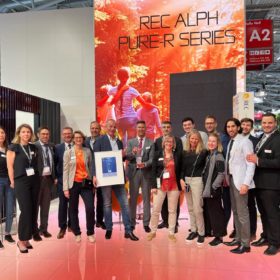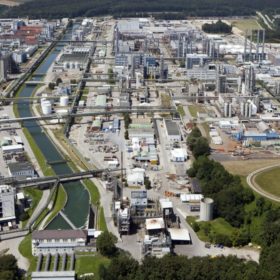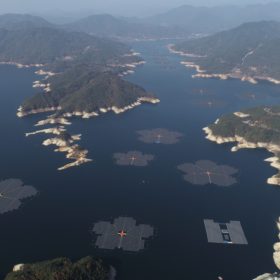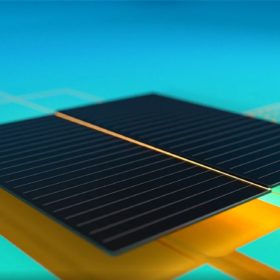Prefab floating solar for easy installation
A Norwegian startup has patented a floating solar system made of panels laminated on top of double-aluminum sheets. The pre-stringed floats are rolled out on site and towed into place.
The Hydrogen Stream: Viritech, Pininfarina unveil world’s first ‘hydrogen hypercar’
Viritech and Pininfarina have announced plans to put a hydrogen-fueled car into limited production in 2023, while H2 Clipper said it aims to finish a prototype of its hydrogen-powered airship by 2025.
Novel floating PV system design from Norway
Norwegian scientists have tested a new floating PV system concept at a water reservoir in Sri Lanka. The system is made of composite beams to support the solar panels and high-density polyethylene (HDPE) pipes to provide buoyancy.
Vertical rooftop PV pilot goes online in Norway
Over Easy Solar AS has developed a rooftop PV system with two generation peaks – one in the morning at 11 am, and one in the evening at 7 pm. It has been deployed on a school building.
World record in hydrogen combustion in micro gas turbines
Scientists in Norway have managed to run a micro gas turbine plant on pure hydrogen. They claim their experiment paves the way for the use of existing infrastructure to generate heat and power with the green fuel.
REC: “Our future is in HJT”
While many solar manufacturers are as yet undecided about which PV cell technology they will choose for their next high efficiency expansions, for Singapore-based REC, the future is HJT. pv magazine spoke to Cemil Seber, the managing director at REC Solar EMEA GmbH at the Intersolar Europe 2022 trade show, to dig deeper into these manufacturing plans.
Wacker to expand silicon metal production in Norway
Polysilicon manufacturer Wacker has launched a feasibility study for its expansion plans in Norway. It said its production capacity in the village of Holla could increase by 50% by 2025.
Siemens, ABB invests in Norwegian battery company
Startup Morrow Batteries has raised €100 million ($105.9 million) in a funding round led by Siemens and ABB. It will use the money to build its first battery cell factory in Norway, its home market.
DNV aims to achieve FPV-specific reference standards for floating solar PV
DNV is spearheading two joint industry projects that aim to develop reference standards for the design, development, and operation of floating PV systems. Such standards are still largely lacking, potentially leading to delays and obstacles in permitting and authorization.
Smarter E Products: REC showcases G12 residential heterojunction PV module with gapless design
REC’s new heterojunction solar panel series features efficiencies of up to 22.3% and an operating temperature coefficient of -0.26% per degree Celsius.
